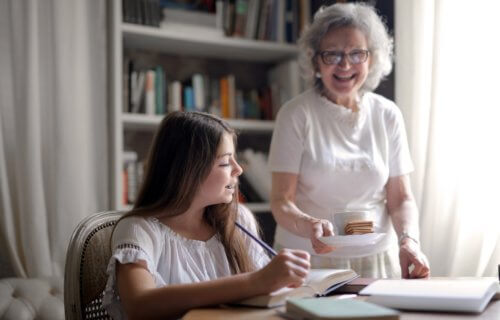BIRMINGHAM, United Kingdom — Popular culture makes it appear as though older adults tend to be grumpy and cranky, but a new study finds the exact opposite. Researchers at the University of Birmingham say older adults are more likely to help others than younger individuals.
This research is among the first to show that “pro-social” behavior (actions that benefit others) evolves with age. More specifically, researchers focused on effortful pro-social behavior. These are actions where people actually exert physical energy to help someone else, as opposed to donating to charity.
Two distinct groups of subjects took part in this project. One group included 95 younger adults between 18 and 36 years-old. The second included 92 older individuals between 55 and 85. Each participant made 150 choices as to whether or not they would grip a handheld dynamometer, a device that measures grip strength and force. Researchers presented each person with six different difficulty settings for the device.
Before this test of strength, the team measured everyone’s average grip strength. This gave study authors a good idea of the amount of effort each person had to put in.
Before each decision, subjects were told whether they were working to earn money for themselves or for someone else. First, subjects were asked if they wanted to go through with the grip. If they accepted, they had to grip hard enough to earn the cash.
Older people are more willing to go the extra mile for someone
The results provided some very interesting results. When the grip wasn’t all that difficult and easy to complete, younger adults were very willing to help someone else. However, if the grip was extra hard, older adults were more willing to put in extra effort for another person. Conversely, younger adults only tended to put in their max effort if the money was for themselves.
“Past research had suggested that older adults were more prosocial than young adults because they donate more money to charity. But, the amount of money or time people have available changes a lot as we get older, as such older adults might just appear more prosocial. We wanted to focus simply on people’s willingness to exert effort on behalf of someone else, as this shouldn’t depend on your wealth or the time you have available. Our results showed very clearly that participants in our older age group were more likely to work harder for others, even though they would gain no significant financial reward for themselves,” says senior study author Dr. Matthew Apps in a university release.
“A lot of research has focused on the negative changes that happen as people get older. We show that there are positive benefits to getting older too, in particular older adults seem to be more willing to put in effort to help others. These ‘prosocial behaviors’ are really important for social cohesion. Understanding how prosocial behavior changes as people get older is critical as we predict the impact of an aging society,” lead author Patricia Lockwood concludes.
The study appears in the journal Psychological Science.
